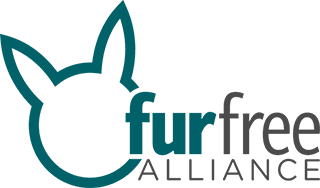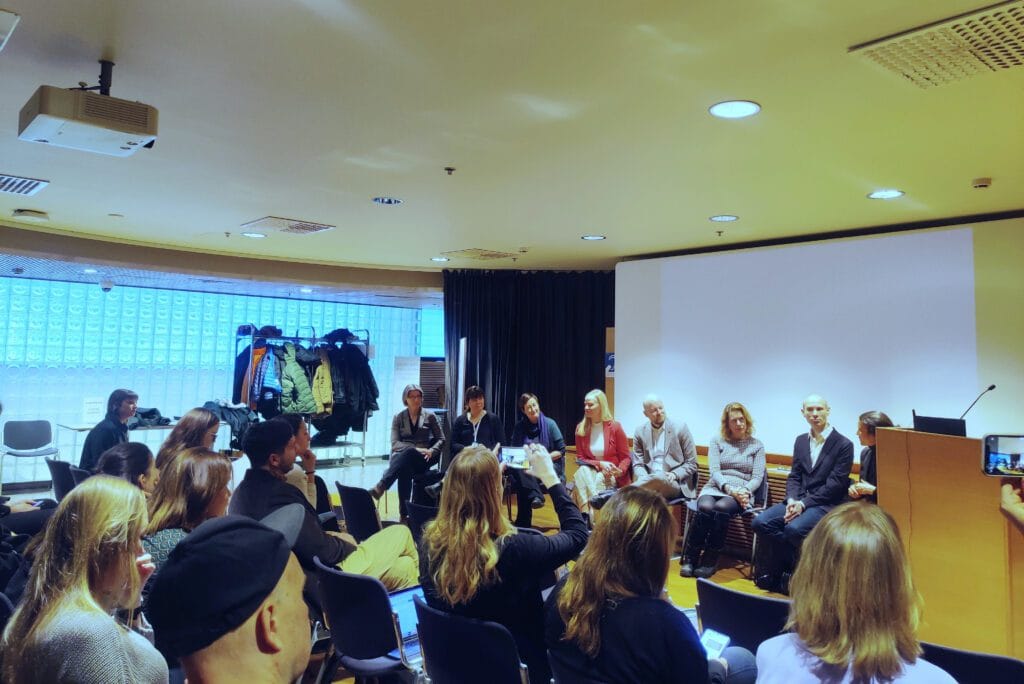
Fur Free Alliance visits Finland, appeals to the parliament to ban fur farming
HELSINKI, 30 November 2023 – The debate related to Finnish fur farming, the avian flu epidemic in fur farms and several legal initiatives to ban fur farming made Finland an interesting destination for the visit of the international animal protection network Fur Free Alliance.
During the visit, the Finnish member organizations Animalia and Oikeutta eläimille organized an event in the parliament’s Kansalaisinfo, to discuss European developments that have led to the banning of fur farming in twenty European countries, and efforts to bring about a prohibition in Finland as well.
The event heard from a number of prominent politicians, who spoke about both the public health and animal welfare concerns of fur farming and of the need for a just transition to enable farmers to exit the industry. Hanna Holopainen, from The Greens, confirmed that she had introduced a legislative proposal that calls on the government to end fur farming.
At the end of the event, the Fur Free Alliance’s chair, Joh Vinding, handed over a letter to Jenni Pitko, chairman of the parliamentary animal protection group, appealing to the Finnish parliament to abolish fur farming in Finland. Vinding stated:
“Now that Finland is one of the last remaining European countries that still allows and practices fur farming, international attention is focused on the country. This is also influenced by the fact that the spread of avian flu in Finnish fur farms raises concerns about a new pandemic around the world. Since animal shelters employ very few people in Finland, now would be a good time to end this cruel practice”.
Animalia’s Executive Director Heidi Kivekäs stated:
“Fur farming, despite tens of millions of tax euros, is in historically great financial difficulties. It is completely in the hands of the decision-makers, whether the industry will be allowed to collapse uncontrollably or whether the transition will be managed in a controlled and sustainable manner. The decision-makers have at their disposal operational models from the former large fur-growing countries, as well as Professor Eija Vinnar’s so-called fur farm exit report”.
“The footage from Finland and other breeding countries shows that Finnish fur breeding is not any different from fur breeding elsewhere in the world. The quality of life and living conditions of fur animals is bad wherever they are, fur farming is unethical all over the world,” says Kristo Muurimaa, the communication and campaign manager of the Oikeutta eläimille organization.
Not only is fur farming of great concern from an animal welfare perspective, it is damaging to the environment and, in light of outbreaks of COVID-19 and highly pathogenic avian influenza A(H5N1) on fur farms in recent years, it also poses a risk to public health.
Clear evidence has been gathered, through numerous investigations on European fur farms of serious animal health problems that are inherent to the battery housing system used on such farms, including self-mutilation, infected wounds, cannibalism and stress-related stereotypical behaviour. Earlier this month, the Finnish Veterinary Association stated: “Fur farming is problematic ethically, in terms of animal welfare, environmental protection and zoonotic diseases”. The Association makes its position clear, saying it believes that “cage farming of fur animals should be banned in Finland.”
At the event, the Fur Free Alliance members NOAH and Bont voor Dieren highlighted how the transition away from fur farming has been handled in their countries, both former major fur farming centres, in Norway and the Netherlands respectively, and what Finland could learn from these cases:
The Norwegian parliament passed a law prohibiting fur farming in 2019. In Norway, the fair transition of fur farming is supported by financial compensation, a transition support program and a re-employment assistance system. Although the ban was scheduled to come into force in 2025, the last fur farm closed two years early in 2023.
The Netherlands banned fox and chinchilla farming in 2008 and mink farming in 2013. At the time, the country was the world’s third-largest producer of skins after Denmark and China. In the Netherlands, the fair transition of the fur farm has been supported with dismantling and conversion support, compensation for killing fur animals related to the covid-19 pandemic, a compensation arrangement related to the advance of the ban on fur farms, and a re-employment assistance system.
With thanks to the speakers who attended event: Hanna Holopainen, MP, The Greens; Anders Norrback, MP, Swedish People’s Party of Finland; Helena Marttila, MP, Social Democratic Party of Finland; Jussi Saramo, MP, Left Alliance, and Marjo Anttoora, Special Adviser to the Minister, Finnish Christian Democrats.





